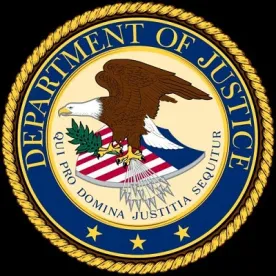While predicting upcoming white-collar enforcement trends may be uncertain, many practitioners agree that law enforcement authorities will continue to make health care fraud prosecution a priority in 2021. Regardless of the administration in Washington D.C., health care is a clear focus for law enforcement. Because health care investigations are often complex and slow-moving, how this focus will translate to prosecutions and civil enforcement actions amidst the complications of Coronavirus Disease 2019 (COVID-19) remains to be seen.
Health care fraud investigations often begin with information from a health care provider insider (whistleblower) who files a False Claims Act (FCA) case in hopes of obtaining a large reward should the government prevail. Over the last few years, federal authorities have seen a significant uptick in FCA filings by whistleblowers. This growth in opened civil matters has meant an increase in the number of federal civil FCA cases and FCA recoveries and the initiation, in some cases, of parallel criminal matters. Almost a year ago, in January 2020, the Department of Justice (DOJ) announced it recovered over $3 billion attributable to FCA matters for fiscal year 2019.
While we expect the recoveries in 2020 to exceed that amount due in part to the Purdue Pharma settlement discussed below, the real question is where recoveries will be in years to come as the impacts from COVID-19 shutdowns are felt. In 2019, 633 new FCA cases were filed – an average of 12 cases filed per week.
We expect FCA filings to be down in 2020 in large part due to court closures and other impediments. Since around March 2020, most areas of the country have experienced court shutdowns and government office shutdowns, which impact the number and pace of such filings. In addition, business disruptions and stay-at-home orders have created practical difficulties for whistleblowers, their counsel, and prosecutors, as they investigate and document purported fraud in connection with their cases. For these reasons, we likely will see a decline in the number of new FCA cases filed in the latter half of 2020 and the first half of 2021. How sharp the decline will be remains to be seen, as we are awaiting key reports pertaining to the periods covered by the COVID-19 disruptions.
The “big” event in the federal health care enforcement area is the annual (or bi-annual) health care fraud “take down” (see November 2020 GT Alert). This year’s takedown, which was announced on Sept. 30, 2020, focused on the area of telemedicine. According to the Department of Health and Human Services (HHS) Office of Inspector General (OIG) fact sheet, 345 defendants were charged with criminal health care fraud offenses that allegedly caused over $6 billion in losses. Of this $6 billion, $4.5 billion was allegedly attributable to false and fraudulent claims filed in connection with or as a result of telemedicine advertisements or services. The telemedicine executives charged in the takedown allegedly operated businesses that used direct mail, telemarketing calls, television advertisements, and other methods to induce unsuspecting patients to agree to speak with medical practitioners that were paid by the telemedicine business to order unnecessary durable medical equipment, genetic and other tests, and medications based on brief telephone conversations with patients. In addition to the emphasis on telemedicine, federal officials brought charges against individuals involved in allegedly marketing or providing fraudulent or unnecessary substance use disorder treatments, providing medically unnecessary illegal prescriptions, unlawfully distributing opioids, and committing more run-of-the-mill health care fraud.
Since the advent of COVID-19, federal criminal authorities have targeted pandemic and pandemic-related criminal conduct, such as the marketing of phony “cures” and similar fraud schemes. Other trends in criminal prosecutions over the last 12 months include the government’s continued interest in opioid prescribing, urine testing, genetic testing, compounding pharmacies, Medicare Advantage Plans, electronic medical record certification falsification and compliance, and kickbacks, most particularly in the areas of patient assistance programs (PAPs) and speaker programs. We may see even more focus on speaker programs, as the HHS OIG just issued a not-often-used “Special Fraud Alert” highlighting “the fraud and abuse risks associated with the offer, payment, solicitation, or receipt of remuneration relating to speaker programs by pharmaceutical and medical device companies.”
This year saw Purdue Pharma (the manufacturer of OxyContin) agreeing in a global settlement of its criminal and civil investigations to pay $8 billion as part of a global criminal/civil resolution in connection with its manufacture and marketing of opioids. Of that $8 billion, $3 billion is attributable to an FCA settlement. These resolutions were subject to the approval of the bankruptcy court. The DOJ also entered into over $700 million in civil settlements with pharmaceutical manufacturers relating to their operation of PAPs that offered to make patient co-pays. Other new hot areas for federal civil enforcement in 2020 include EMR certification compliance; Medicare Advantage Plans; genetic testing; and compounding pharmacies.
During at least the first two quarters of the Biden administration, expect to see federal health care cases brought in basically the same areas identified above, as current investigations mature into prosecutions and/or civil settlements. We also expect continued enforcement in COVID-19-related frauds including fraud in connection with the sale of Personal Protection Equipment (PPE), phony “cures,” and federal health care payments relating to federal recovery programs. As 2021 progresses, we may see a renewed interest in prosecuting individual actors, namely executives, not just entities, for health care fraud offenses.
Finally, in the realm of state health care enforcement, which has increased overall during the past few years, we may see a decline of enforcement for the end of 2020 and first half of 2021 due to budget and logistical issues. Because many state health agencies have been at the forefront of pandemic planning, resources have necessarily been allocated away from compliance and enforcement. Further, strained state budgets due to the pandemic may also translate into fewer investigative resources.




 />i
/>i
